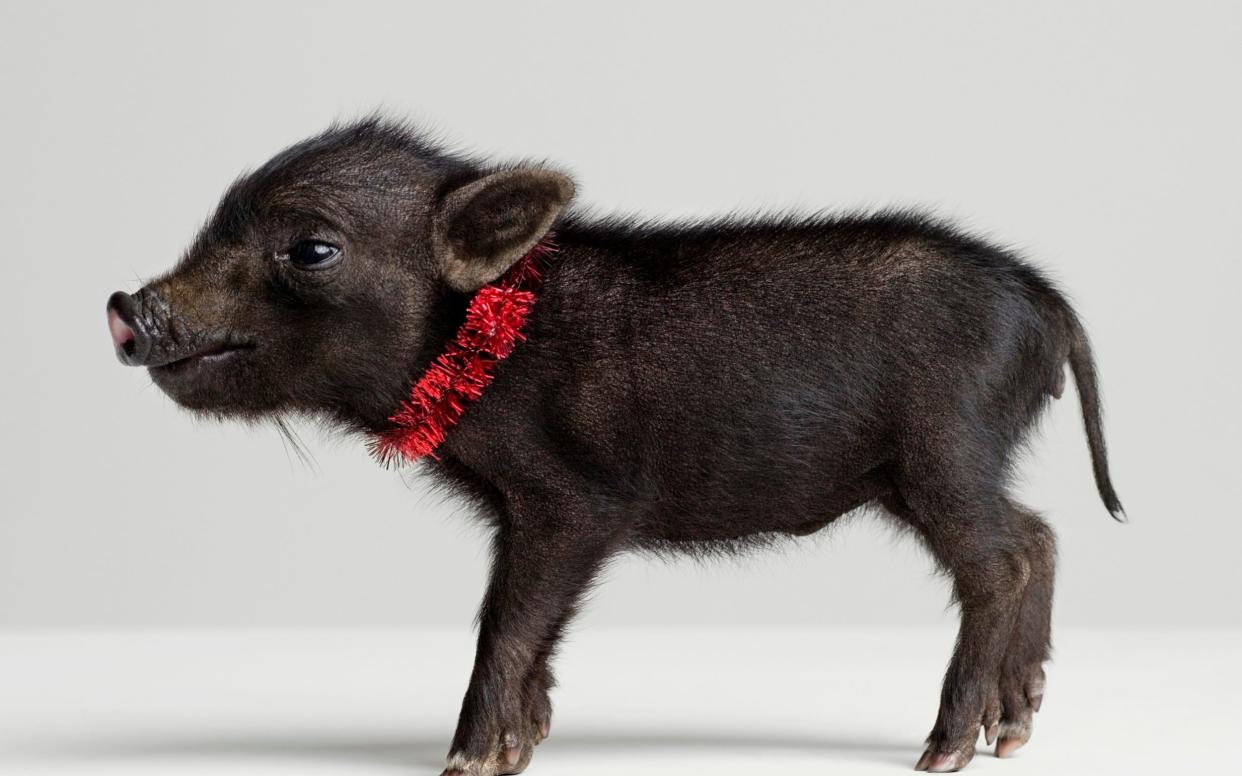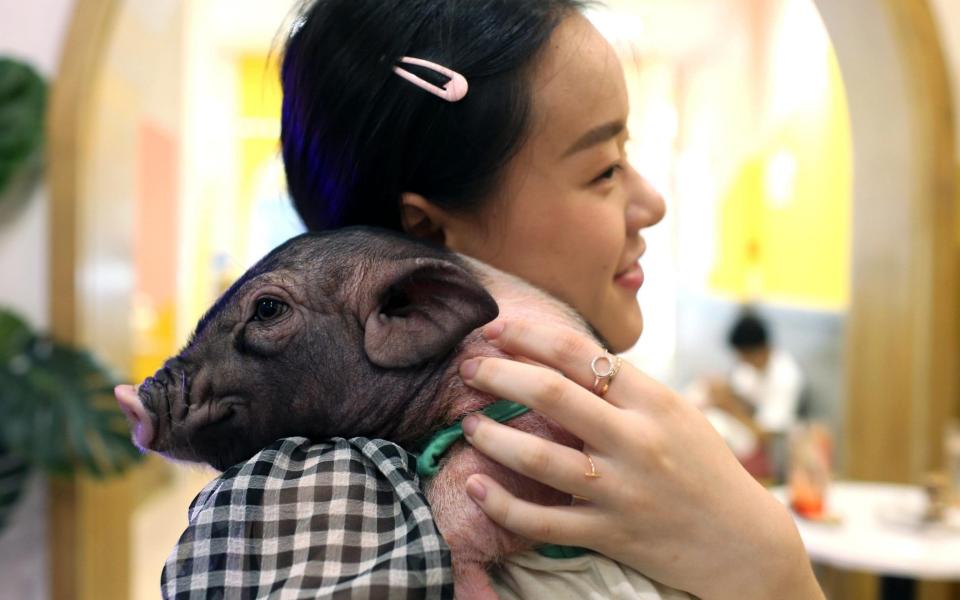Pet micropigs act like dogs in the home by oinking at their owners for food, scientists find

Pet micropigs act much like dogs in the home, oinking at their humans for food, scientists have found.
In the first study comparing the behaviour of pigs to dogs in the home, scientists from Eötvös Loránd University, Budapest have discovered that pigs are more likely to try and solve problems by themselves rather than seeking help from humans. Dogs, on the other hand approach a person at the first sign of trouble.
Micropigs have become popular pets in the past decade, after smaller breeds of domesticated pig were found to make relatively clean and intelligent companions. They differ to common farmyard pigs only in their size.
Scientists decided to study the households pets because they are socialised and raised in a very similar way to pet dogs, so thought there could be interesting comparisons to be made about their respective behaviours.

The study, published in Animal Cognition, found that pigs can be "more vocal" than dogs, making noises to seek attention or help from humans. In neutral situations, both animals approach animals the same amount, but when a challenge arises, dogs are faster to seek help from their owners.
Researchers used the so called 'Unsolvable task paradigm', where the animal first faces a problem that he can solve, which was an easy-to-open box with food inside. Then, after a few trials with the box ajar, it is securely closed and unsolvable by the animals. Dogs quickly approached humans for help when the task became unsolvable, but pigs spent longer trying to open it themselves.
"When the box was first in the room without food in it, pigs and dogs performed similar human-oriented behaviours", said Linda Gerencsér, who helped author the study.
She added: "The differences appeared when we put food in the box and opening it became an exciting challenge. Pigs were faster than dogs already in solving the task and getting the reward, perhaps due to their better manipulative capacities. Then, when the task became unsolvable, dogs turned to the humans more than before. In contrast, pigs performed less human-oriented behaviours, but they were more persistent than dogs in trying to solve the task, which may reflect their predisposition to solve problems independently."
The scientists also found that the two species differ in that dogs prefer to look at humans to make contact in a neutral setting, whereas pigs are more likely to make noises to get attention.
"The similarities that we found between the two species point to their similar capacities for engaging in communicative interactions with humans", noted another author, Paula Pérez.
"However, species-specific predispositions might be responsible for the found differences. Dogs are naturally more dependent on and cooperative with humans. This explains their unique success in interacting with us," she added.

